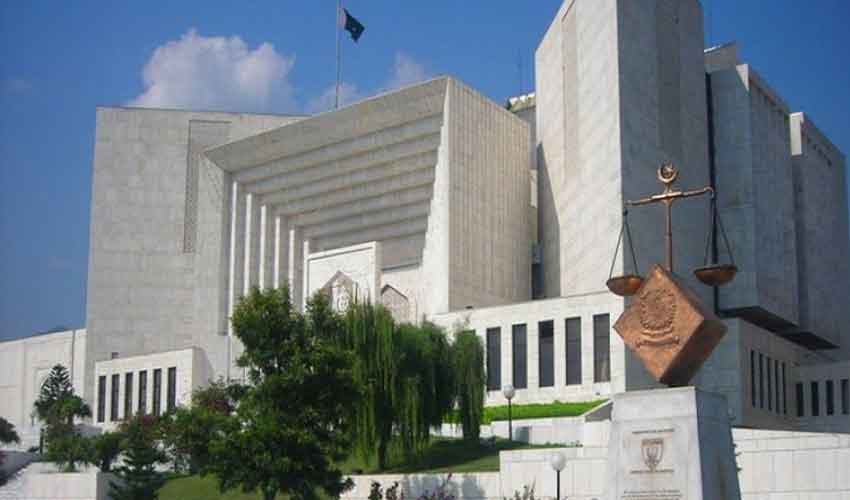IHC in the audio leaks case earlier ruled that any action of phone tapping without a legal mechanism was ‘illegal’

ISLAMABAD: The Supreme Court has issued a significant ruling halting further proceedings in the audio leak case currently before the Islamabad High Court (IHC). This decision came in response to an appeal filed by the federal government challenging the IHC’s May 29 order which had placed restrictions on phone tapping and surveillance activities.
During a recent hearing, Additional Attorney General (AAG) Amir Rehman argued that the IHC’s order severely hampers the operational capabilities of intelligence agencies, such as the Inter-Services Intelligence (ISI) and the Intelligence Bureau (IB). The IHC’s May 29 ruling had declared that no state official was authorized to conduct surveillance without explicit legal authorization. The court had emphasized that unauthorized surveillance infringes upon the fundamental rights of citizens, as enshrined in Articles 9, 10A, 14, and 19 of the Constitution.
The Supreme Court’s intervention follows concerns raised by AAG Rehman that the IHC’s order obstructs counter-intelligence efforts and the apprehension of terrorists. In response, Justice Aminuddin Khan questioned whether the high court had determined the source of the recorded audio. The AAG acknowledged that the investigation into the origin of the audio is ongoing, with no definitive conclusions reached thus far.
Justice Naeem Akhtar Afghan expressed frustration with the handling of the case, lamenting that efforts to uncover the truth have been thwarted at multiple levels, including parliamentary inquiries and judicial reviews. He remarked, “Unfortunately, in this country, no one wants to uncover the truth. An inquiry commission was established to find the truth, but the Supreme Court stayed it.” The judge questioned how transparency could be achieved if both Parliament and the judiciary are impeded from conducting their inquiries.
Further complicating the matter, Justice Aminuddin Khan suggested the possibility that the audio leak might have originated from the person being recorded. He pointed out that many modern mobile phones have built-in recording capabilities, which should be considered in the ongoing investigation.
The SC’s recent order not only halts the IHC’s proceedings but also addresses concerns regarding the high court’s jurisdiction. The apex court highlighted that the IHC might have exceeded its jurisdiction under Article 199 of the Constitution, as established by previous rulings of the top court. The SC also noted that several issues raised during the IHC’s May 31 hearing were not part of the original petition, and it questioned the IHC’s authority to conduct investigations into the audio leaks.
#SupremeCourtRuling, #IHCProceedingsHalted, #AudioLeaksCase, #PhoneTapping, #SurveillanceLegalities, #IntelligenceAgencies, #ConstitutionalRights, #ISI, #IB, #PakistanJudiciary, #SCIntervention,



